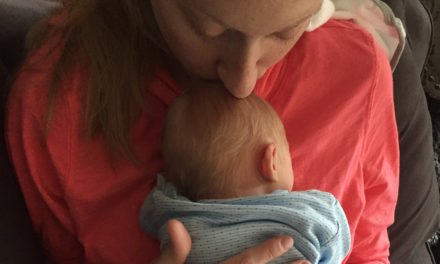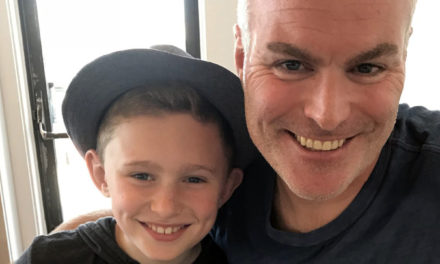Whenever I tell someone I have anxiety and depression, they always ask why. They tell me I have so much to live for, my life is just starting, and I have nothing to be sad about. Depression is not about sadness or feeling bummed because something didn’t go your way. It is a disease that slowly consumes and overwhelms you and makes everyday activities feel like monumental struggles.
I’ve spent the last 12 years learning to cope with everything that comes with being borderline bipolar and dealing with panic anxiety disorder. I’ve learned to deal with my brain chemistry fairly well, but I’m always surprised at the distance between the reality of living with it and what so many people believe it to be.
Based on my experience, these are the most common misconceptions about depressive disorders.
No. 1: Depression is just sadness
People experience depression differently, but from my experience, it is feeling hopeless, worthless, unmotivated, and losing interest in all things you enjoy doing. It is not having the strength to get up in the morning, to pay attention to your family or friends, and an inability to express how you are really feeling. Depression is not something you can turn on and off, so when I hear people say things like, “I totally flunked that final. I’m so depressed now,” or, “That movie was so depressing,” it irritates me to no end. Those things are sad, unfortunate even, but not depressing.
No. 2: Depression = Laziness
There are times when getting out of my bed in the morning feels like the hardest thing I have ever done in my life. It is a constant struggle, but depression takes the drive out of you. I often feel like a complete bum because I don’t have enough energy to walk my dog, exercise, or go to the grocery store. Having a disease is draining, physically, emotionally, and mentally. My dad used to tell me to just get over it and to stop moping, and I’ve had explain over and over that it is out of my control.
Depression leeches onto you like a parasite, and the harder you try to get rid of it, the more vehemently it digs in. It’s important to remember that you are not being lazy. You are putting all the effort you can muster into just functioning.
No. 3: You can just stop worrying
At my worst, my anxiety caused me to miss 22 days of school when I was in 8th grade. I was having panic attacks, major depressive episodes, and on top of that I was being severely bullied. I was terrified to go to school, afraid to fail, and couldn’t bare the thought of stepping foot into the building. Since then, I’ve learned coping strategies and not the typical take-a-deep-breath kind. I started keeping a journal to document my day, met with a counselor weekly, and found a hobby that keep me mentally engaged. Finding something to take your mind off of your fears will help immensely. I started writing poetry and got more involved with my local choir group. It takes time to learn to trust yourself and to believe that you have the ability to do great things.
No. 4: Anxiety is just stage fright
Anxiety is not the same as being afraid or stressed. There are several different types of anxiety disorders: general anxiety, obsessive-compulsive, PTSD, panic disorder, and social phobia. I suffer from PTSD and a panic disorder, so doing certain things actually could scare me to death. Asking for help, directions, talking on the phone, or in public are some of the things I still have trouble doing.
When I have to speak to someone about something important, my heart starts racing, I can’t think straight, all of my words are gone, and I become short of breath and start crying. These are typical signs of a panic attack. Panic attacks can happen to anyone at any moment. Having a little anxiety is normal, but when it begins to affect your daily routine, that’s when you know it’s more than just run-of-the-mill stress or social awkwardness.
No. 5: All medications work for all people.
I am proof that not all medications work for all people. I have tried 15 different medications and have experienced almost every side effect. It has taken 10 years to get my “cocktail” right. Typically, if depression runs in a family the same medications used on others will work on you as well. In my case this was true. Several people in my family take the exact same medication at the same dosage. But this is not always the case. Finding the right medication, if needed, takes time and a huge amount of patience. Medications are tricky and it may take a combination of medications to make you feel better.
So what can you do?
Here’s what I’ve learned. Having a support network of people who understand on some level what you’re going through will help you feel less isolated, which in turn will help improve your anxiety and depression.
My best piece of advice for dealing with anxiety and depression is this: when explaining to loved ones or friends about depression, use the “Spoon Theory,” a concept passed on to me by my mother, who also suffers from anxiety and depression.
What the heck is the Spoon Theory? You start your day off with 10 spoons. It takes two spoons to get out of bed, one spoon to get cleaned up and dressed, two spoons to get ready for work or get kids ready for school, and five spoons to go to work or do housework. By the middle of the day, you are out of spoons and have one tucked away for later. You are exhausted, drained, and have no more energy to deal with anything. So by the time your family comes home or your friends want to go out, you have nothing left in you. It’s not that you don’t want to spend time with your family or friends; it’s that you physically and mentally have nothing left to give.
Giving family and friends a look into how your day goes will hopefully help them better understand everything you are going through.









Em, you are – and have been – an inspiration to me. You are strong. You are courageous. You are smart. You are beautiful. And you are loved!
Thanks for sharing your experience, strength and hope. It will be awhile before society understands the biological illness that is depression; in the meantime, people bravely sharing their stories will help enlighten the masses.
Way to go Emma. This really helped to clarify this topic for me.
Great article Emma!! Such a hidden problem…super brave for you to explain your experience! Thank you for sharing it!